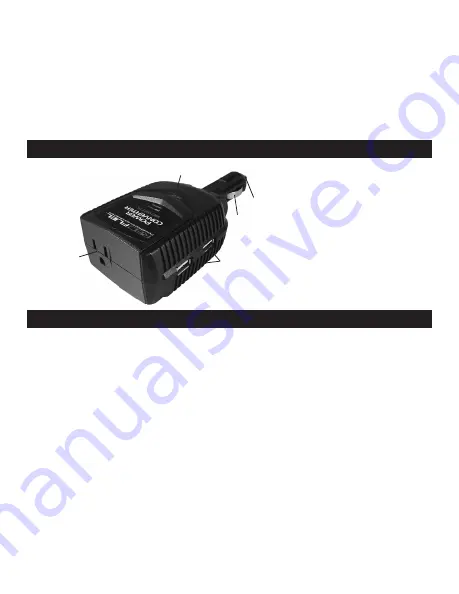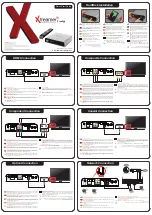
•
3
•
1.21 This device does not include an internal Ground Fault Circuit Interrupter (GFCI).
For GFCI protection, use a Coleman Cable 02822 GFCI outlet.
1.22 Restrictions on Use: This converter may not be used in life support devices or
systems. Failure of this converter can reasonably be expected to cause failure of
that life support device or system, or to affect the safety or effectiveness of that
device or system.
1.23 WARNING: This product contains one or more chemicals known to the state of
California to cause cancer and birth defects or other reproductive harm.
2. FEATURES
1. AC receptacle
2. LED Indicator
3. Positive connector
4. Negative connector
5. USB ports
2
5
3
4
1
3. BEFORE USING YOUR CONVERTER
•
Automotive batteries are recommended for only a short period of time of an hour or less.
•
Do not use the converter with a product that draws a higher wattage than the
converter can provide, as this may cause damage to the converter and product.
When you turn on a device or a tool that runs on a motor, the device goes through 2 stages:
1. Start Up – Requiring an initial surge of power (commonly known as the
“starting” or “peak” load).
2. Continuous Operation – Power consumption drops (commonly known as the
“continuous load”).
The wattage (WATTS) or amperes (AMPS) can normally be found stamped or
printed on most devices and equipment, or in the user’s manual. Otherwise,
contact the manufacturer to find out whether the device you want to use is
compatible with a modified sine wave.
To calculate the wattage: Wattage = AMPS x 120 (AC Voltage).
To calculate the starting load: Starting Load = 2 x wattage.
In general, the startup load of the device or power tool determines whether your
converter has the capability to power it.




































